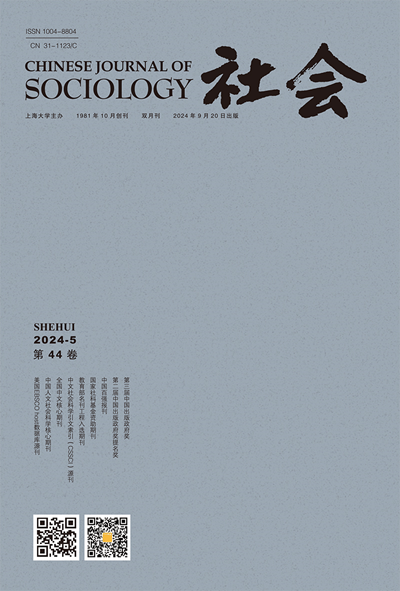权力空间与治理绩效——基于上海城市邻里调查的分析
IF 1.8
4区 社会学
Q2 SOCIOLOGY
引用次数: 1
摘要
为什么不同空间区域的社区表现出不同类型的治理绩效?本文运用空间理论的视角,提出了“权力空间”的解析概念。这个概念是指社区与市政行政权力中心之间的距离。基于上海市城市邻里调查数据,研究了城市权力空间结构不同区域的社区治理绩效差异,并分析了这些差异的原因和机制。研究表明,社区与治理权力中心之间的空间距离不仅具有物理和地理的性质,而且具有社会和政治的性质。我们发现,与权力中心的距离对容易观察到的社区治理绩效类型有显著影响,但对不易察觉的社区治理绩效类型影响不大。这表明,权力空间对高层官员容易识别的现象具有很强的影响,而对不太明显但被居民欣赏的现象则没有作用。这种模式可以用现有的治理绩效考核体系和激励机制来解释。权力空间通过公共资源配置机制和治理绩效基准机制发挥影响,同样适用于社会治理的其他领域。总之,本研究有助于理解当代中国基层社会治理的内在逻辑。本文章由计算机程序翻译,如有差异,请以英文原文为准。
Power space and governance performance: An analysis based on the Shanghai Urban Neighborhood Survey
Why do communities in different spatial areas display different types of governance performance? Applying the perspective of spatial theory, this paper proposes an analytical concept of “power space”. The concept refers to the distance between a community and the municipal administrative power center. Based on data drawn from the Shanghai Urban Neighborhood Survey, this study examines the variation in governance performance across communities located in different areas of the spatial structure of city power, and analyzes the causes and mechanisms underlying these differences. The study suggests that the spatial distance between the community and the center of governance power is not merely physical and geographical in nature but also social and political. We find that the distance to the center of power has a significant effect on the types of community governance performance that are easily observable, but little effect on those that are less perceptible. This reveals that power space exerts a strong effect on phenomena that can be easily recognized by higher-level officials, but not on phenomena that are less visible but nevertheless appreciated by the residents. Such a pattern can be explained by the current governance performance assessment system and incentive mechanism. Power space exerts an influence through the mechanisms of public resource allocation and governance performance benchmarks, which are equally applicable to other areas of social governance. In sum, this study contributes to the understanding of the underlying logic of grassroots social governance in contemporary China.
求助全文
通过发布文献求助,成功后即可免费获取论文全文。
去求助
来源期刊

社会
Social Sciences-Social Sciences (all)
CiteScore
1.70
自引率
0.00%
发文量
6799
期刊介绍:
The Chinese Journal of Sociology is a peer reviewed, international journal with the following standards: 1. The purpose of the Journal is to publish (in the English language) articles, reviews and scholarly comment which have been judged worthy of publication by appropriate specialists and accepted by the University on studies relating to sociology. 2. The Journal will be international in the sense that it will seek, wherever possible, to publish material from authors with an international reputation and articles that are of interest to an international audience. 3. In pursuit of the above the journal shall: (i) draw on and include high quality work from the international community . The Journal shall include work representing the major areas of interest in sociology. (ii) avoid bias in favour of the interests of particular schools or directions of research or particular political or narrow disciplinary objectives to the exclusion of others; (iii) ensure that articles are written in a terminology and style which makes them intelligible, not merely within the context of a particular discipline or abstract mode, but across the domain of relevant disciplines.
 求助内容:
求助内容: 应助结果提醒方式:
应助结果提醒方式:


